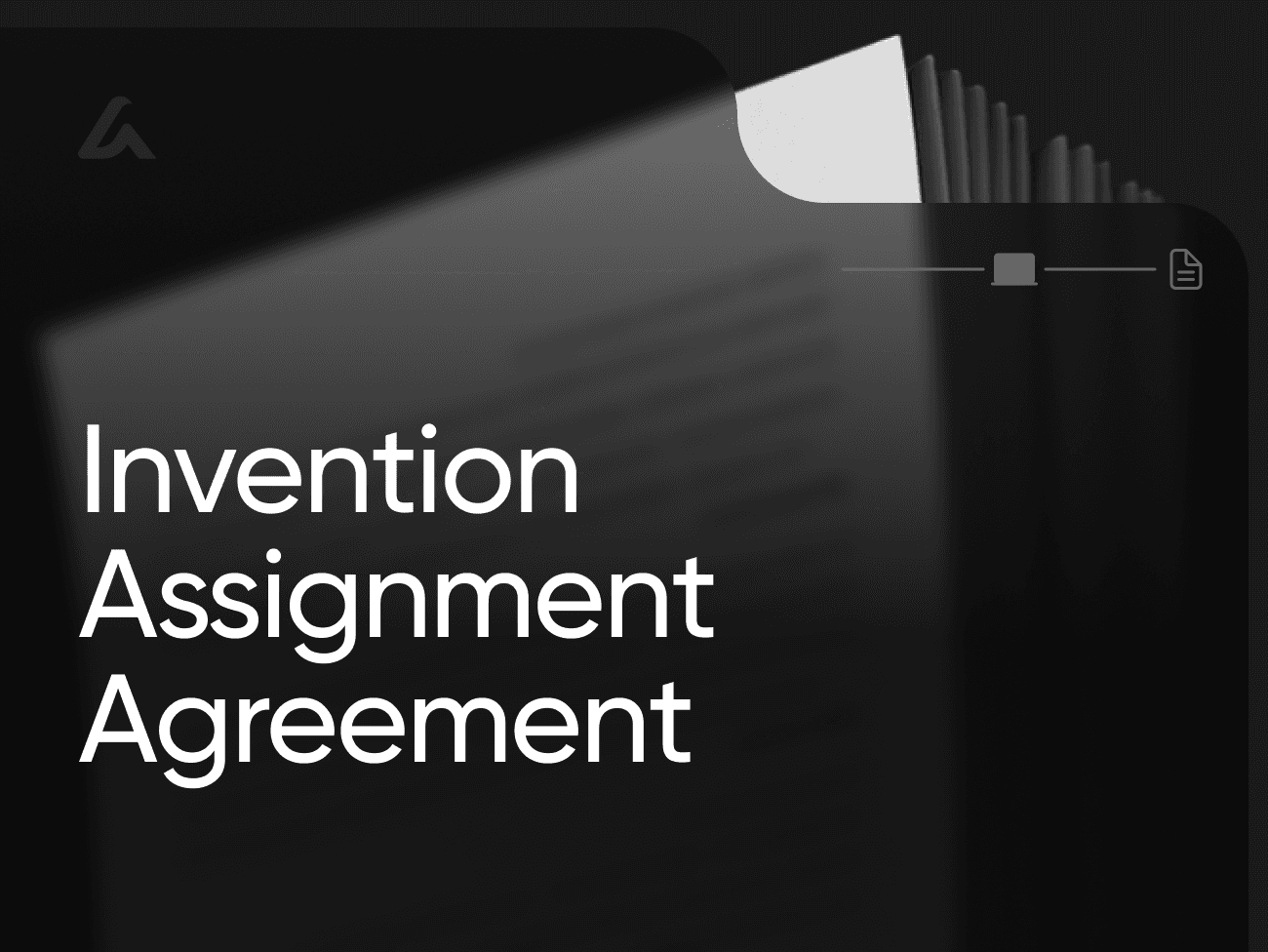AI Lawyer Blog
Internship Agreement Template (Free Download + AI Generator)

Greg Mitchell | Legal consultant at AI Lawyer
3
An Internship Agreement is a legal document that outlines the terms and conditions between an intern and an organization. It establishes expectations regarding duration, duties, compensation (if any), confidentiality, and termination. In 2026, internship agreements are increasingly important as companies adapt to hybrid work, rising labor protections, and increased scrutiny of unpaid programs.
Internships have become a critical career steppingstone. According to the National Association of Colleges and Employers (NACE), 66% of paid interns received a job offer after graduation compared to 44% of unpaid interns. Moreover, the U.S. Department of Labor requires strict compliance for unpaid internships to ensure they primarily benefit the intern and not the employer.
Download the free Internship Agreement Template or customize one with our AI Generator — then have a local attorney review before you sign.
This guide is part of our Employment Legal Templates series — ensuring fair, enforceable workplace relationships for both employers and employees.
You Might Also Like:
Lease Renewal Notice Template (Free Download + AI Generator)
Performance Improvement Plan Template (Free Download + AI Generator)
1. What is an Internship Agreement?
An Internship Agreement is a formal contract that clarifies expectations for both interns and employers. It covers essential details such as start and end dates, total hours, learning objectives, pay (if applicable), and workplace policies.
The agreement ensures that interns understand their role while protecting employers from disputes. It also highlights whether the internship is paid or unpaid and confirms that all arrangements comply with labor laws. For academic internships, the agreement often includes input from a school or university to align learning outcomes with academic credit requirements.
2. Why Internship Agreements Matter in 2026?
Internships have shifted from informal arrangements to structured programs subject to scrutiny. Employers must show fairness, compliance, and genuine educational value. Agreements are critical because they:
Set clear expectations: Both parties know duties, schedules, and outcomes.
Ensure legal compliance: Especially important for unpaid internships subject to labor laws.
Promote fairness: Prevents exploitation of interns as free labor.
Support professional growth: Links tasks to learning goals, enhancing employability.
Strengthen credibility: Companies that use agreements signal professionalism and attract top talent.
3. Key Components of an Internship Agreement
A thorough Internship Agreement should include:
Names of both parties: Legal details of the employer and intern.
Duration: Clear start and end dates, including weekly working hours.
Responsibilities: Specific duties, aligned with learning outcomes.
Compensation: Paid stipend, hourly wages, or an unpaid structure in line with law.
Confidentiality: Protection of sensitive business information.
Learning goals: Outlines educational outcomes expected from the internship.
Supervision: Details of assigned mentors or supervisors.
Termination conditions: Situations where either side may end the agreement.
Acknowledgment and signatures: Confirmation that both parties agree.
4. Types of Internship Agreements
Paid internship agreement: Provides wages or stipends; must follow wage and hour laws.
Unpaid internship agreement: Legal only if it primarily benefits the intern under the Department of Labor’s rules.
Remote/hybrid internship agreement: Includes terms for virtual communication and equipment usage.
Academic internship agreement: Requires collaboration with an educational institution to provide credit.
International internship agreement: Must address visas, cultural expectations, and labor laws abroad.
5. Step-by-Step Guide to Drafting an Internship Agreement
Step 1 — Identify goals: Establish both organizational needs and intern learning objectives.
Step 2 — Define tasks: List specific responsibilities aligned with skills and training opportunities.
Step 3 — Clarify compensation: State payment terms or confirm unpaid status with compliance references.
Step 4 — Add confidentiality rules: Protect company data and intellectual property.
Step 5 — Include academic requirements: If applicable, outline credit or evaluation criteria.
Step 6 — Outline termination terms: Specify notice requirements for ending the internship early.
Step 7 — Address compliance: Ensure alignment with state, federal, or international labor laws.
Step 8 — Get signatures: Both employer and intern should sign for validity.
6. Legal Context and Compliance Requirements
Internship agreements are highly regulated. In the U.S., the Fair Labor Standards Act (FLSA) provides the framework for distinguishing paid from unpaid internships. The Department of Labor applies the “primary beneficiary test”, which asks whether the intern or the employer benefits most from the arrangement.
Other compliance areas include:
Wage laws: Paid interns must earn at least minimum wage.
Anti-discrimination laws: Interns are protected from harassment and discrimination.
Workplace safety: Employers remain responsible for intern safety under OSHA standards.
Noncompliance can lead to penalties, back pay claims, or reputational harm. Globally, similar protections exist, often requiring minimum wage for interns performing meaningful work.
7. Global Perspectives on Internship Agreements
United States: Heavy focus on compliance with FLSA and “primary beneficiary” test.
United Kingdom: Most interns must be paid at least the National Minimum Wage unless they qualify as volunteers.
European Union: Many countries require written agreements and emphasize skill development.
Australia: Fair Work Act permits unpaid internships only if primarily educational.
Canada: Provincial laws regulate internships, often requiring a training component.
This diversity shows that while internships are globally recognized, compliance frameworks vary significantly.
8. Tips for Employers and Interns
For employers: Draft agreements carefully, emphasizing training and mentorship. Avoid using interns to replace regular employees.
For interns: Read agreements thoroughly and ask questions about pay, expectations, and learning outcomes before signing.
For both parties: Keep communication open with regular check-ins to assess progress.
Review annually: Organizations should adapt internship agreements to evolving laws.
Balance compliance with culture: Agreements should be legally sound but also welcoming, reinforcing a positive experience.
9. Internship Agreement Checklist
Employer and intern details
Internship duration and hours
Duties and responsibilities
Compensation or unpaid status
Confidentiality and IP clauses
Learning objectives and mentorship
Termination provisions
Compliance with labor laws
Acknowledgment page with signatures
Download the Full Checklist Here
10. FAQs
Q: Are internship agreements legally binding?
A: Yes. An internship agreement is a contract that holds legal weight once signed. Employers must honor compensation and working conditions, while interns must uphold confidentiality and meet performance expectations. Courts may scrutinize unpaid internships, making a written agreement crucial for protecting both parties.
Q: Can unpaid internships be lawful in the U.S.?
A: Yes, but only under strict conditions. The Department of Labor requires that unpaid internships primarily benefit the intern, not the employer. The experience should be educational, limited in duration, and not displace regular employees. Employers who misuse unpaid interns risk lawsuits and back-pay orders.
Q: What should interns review before signing an agreement?
A: Interns should carefully check compensation details, expected duties, and learning goals. They should also pay attention to confidentiality clauses and termination provisions. If anything seems unclear, interns should seek clarification from HR or an advisor, as signing commits them to the terms.
Q: How long do internships typically last?
A: Internships generally last between 8 and 12 weeks, although some extend over a semester or even a year. Agreements should always specify the start and end dates to prevent confusion. This structure helps both parties plan workloads and ensures legal compliance with labor rules.
Q: Do internship agreements vary internationally?
A: Absolutely. In some countries, such as the UK, most interns must be paid minimum wage, while in the U.S. unpaid internships can still be legal under the “primary beneficiary test.” International interns should review both visa rules and labor laws in the host country before agreeing.
Sources and References
Information and data in this article are drawn from authoritative and publicly available resources, including the U.S. Department of Labor Wage and Hour Division, which outlines the primary beneficiary test under the Fair Labor Standards Act (FLSA) for determining whether internships may be unpaid. Employment statistics are based on the National Association of Colleges and Employers (NACE) Internship & Co-op Report showing job offer outcomes for paid versus unpaid interns.
Comparative legal insights reference the U.K. Government’s National Minimum Wage guidance for interns, European Commission guidance on traineeships, Fair Work Ombudsman of Australia, and Government of Canada internship regulations.
Additional compliance references draw from the Occupational Safety and Health Administration (OSHA) standards on workplace safety and federal anti-discrimination protections enforced by the U.S. Equal Employment Opportunity Commission (EEOC).
Disclaimer
This article is for educational purposes only and does not constitute legal advice. Internship requirements vary by jurisdiction and industry. Always consult an attorney before creating or signing an Internship Agreement.
Get Started Today!
An Internship Agreement provides legal protection, clarifies expectations, and ensures the intern receives a meaningful experience. In 2026, with increased attention on fairness and compliance, written agreements are more important than ever.
Download the free Internship Agreement Template or customize one with our AI Generator — then have a local attorney review before you sign.
Explore more resources in our Employment Legal Templates series to ensure fair and enforceable workplace relationships.
You Might Also Like:



